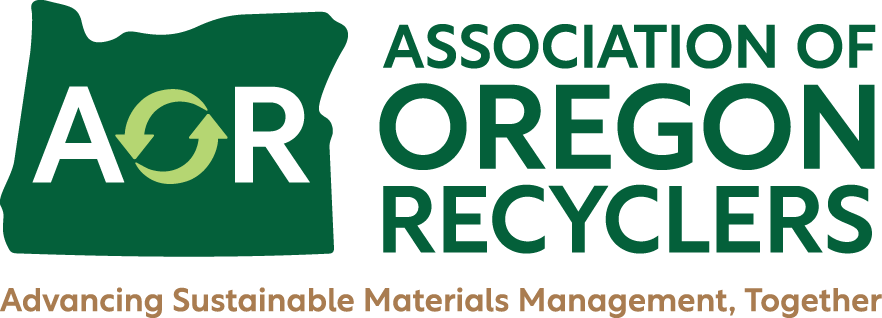Recycling Markets
What Chinese import policies mean for all 50 states
WasteDive provides a great look at how China's recycling import policies are impacting all of us around the U.S.
No Longer Recyclable in Lane County
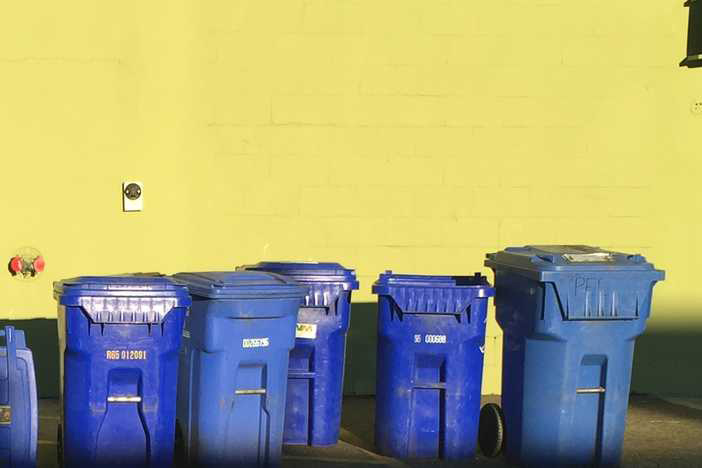 Communities across Oregon - and around the country - are struggling with contaminated recyclables, which has contributed to a sharp drop in interest in U.S. recycled materials from China, the major market for them.
Communities across Oregon - and around the country - are struggling with contaminated recyclables, which has contributed to a sharp drop in interest in U.S. recycled materials from China, the major market for them.
Contamination happens when we put things into recycling bins that can't be recycled and/or are dirty (i.e., trash, items with food residue).
Resource Recycling Provides Key Insights on NRC/AOR Workshop
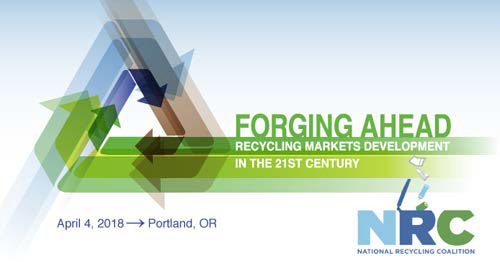 Resource Recycling compiled a great summary of “Recycling Markets Development in the 21st Century,” a workshop co-hosted by the National Recycling Coalition (NRC) and the Association of Oregon Recyclers (AOR) on April 4, 2018.
Resource Recycling compiled a great summary of “Recycling Markets Development in the 21st Century,” a workshop co-hosted by the National Recycling Coalition (NRC) and the Association of Oregon Recyclers (AOR) on April 4, 2018.
We're Recycling Wrong
 China, which had been receiving more than half of the world's recycling, is no longer accepting most plastics and recycled paper with a contamination level above 0.5 percent as part of its "National Sword" policy.
China, which had been receiving more than half of the world's recycling, is no longer accepting most plastics and recycled paper with a contamination level above 0.5 percent as part of its "National Sword" policy.
Meeting this new quality specification has been almost impossible for U.S. processors. Oregon processors have been looking elsewhere, and it's costing more money.
Portland Area Recycling Guidelines Remain Same
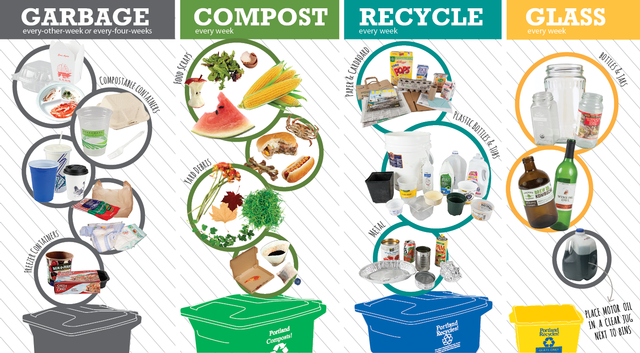 KGW news reports,if the item has been on Metro's list of acceptable recyclables, it is still okay to put into the bin.
KGW news reports,if the item has been on Metro's list of acceptable recyclables, it is still okay to put into the bin.
Marion County Scales Back Recycling in Wake of National Sword
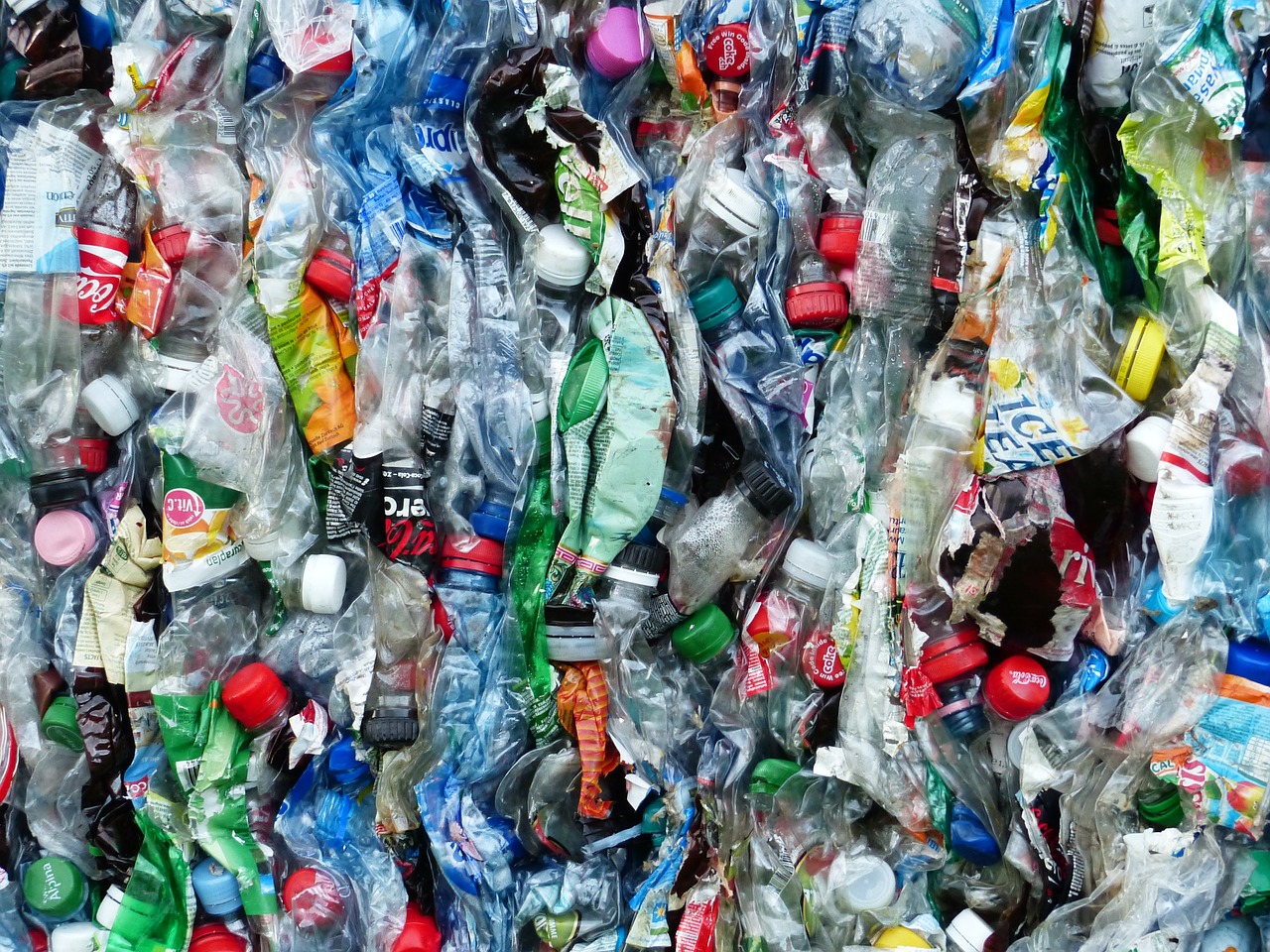 Shredded paper, egg cartons and most plastic containers now are bound for the trash in Marion County, which includes the state capital, Salem, the Seattle Times reports.
Shredded paper, egg cartons and most plastic containers now are bound for the trash in Marion County, which includes the state capital, Salem, the Seattle Times reports.
McFarlane's No Longer Accepts Certain Wood Waste
 Due to a lack of local hog fuel wood fiber users, the McFarlane’s Bark Vancouver and Milwaukie yards will no longer accept wood waste materials, pallets, construction wood, mill-cut wood, and commercially-cut wood as of Sunday, April 1, 2018.
Due to a lack of local hog fuel wood fiber users, the McFarlane’s Bark Vancouver and Milwaukie yards will no longer accept wood waste materials, pallets, construction wood, mill-cut wood, and commercially-cut wood as of Sunday, April 1, 2018.
They will continue accepting land clearing debris, trees, stumps, grass, leaves, and yard debris.
NRC Kicks Off Series of Recycling Markets Development Workshops in Portland
 The National Recycling Coalition (NRC) will hold a series of workshops around the country to address recycling markets development. NRC, a national voice for recycling issues, is hosting these workshops to allow participants within the targeted region to learn how to attract and develop new and local markets for recycling materials.
The National Recycling Coalition (NRC) will hold a series of workshops around the country to address recycling markets development. NRC, a national voice for recycling issues, is hosting these workshops to allow participants within the targeted region to learn how to attract and develop new and local markets for recycling materials.
News from Around the Web (Southern Oregon Edition): 2/15 - 2/24
China's National Sword policy is particularly affecting Southern Oregon recycling programs. Here's a round-up of news articles on this issue:
Curbside Recycling Pickup Under Threat in Oregon Communities (A review of what's happening with recycling programs in Southern Oregon.) - from WRAL.com
Cleaner Recycling in Coos Bay Opens New Markets
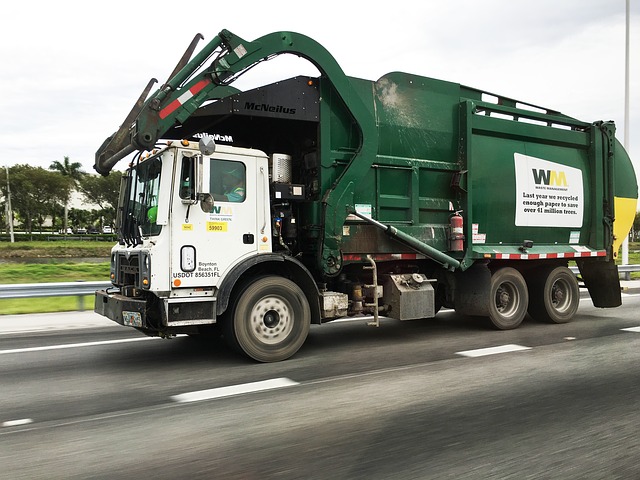 In response to China's recent policies restricting the amount of contamination in recyclables it accepts, Coos County has reduced its contamination in its recycling by 85 percent in just two months.
In response to China's recent policies restricting the amount of contamination in recyclables it accepts, Coos County has reduced its contamination in its recycling by 85 percent in just two months.
